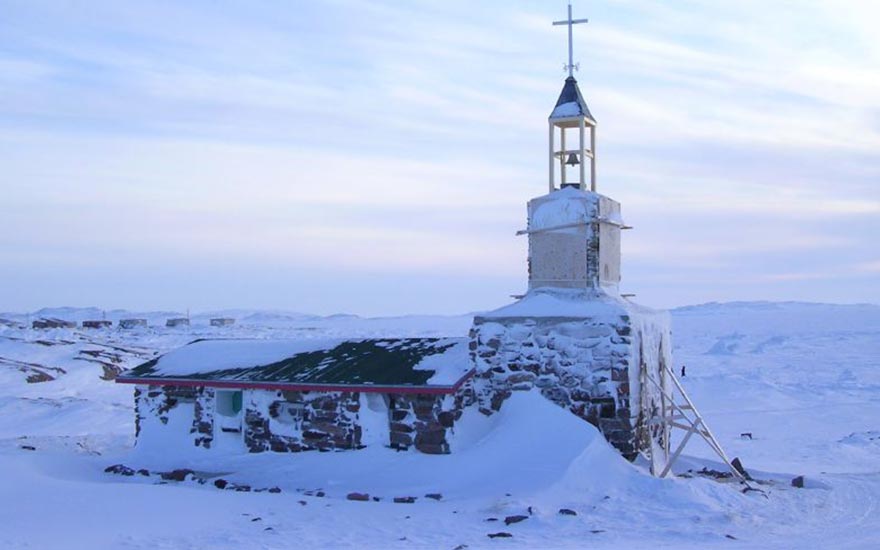The Inuit of Kugaaruk (Inuktitut for “little stream”) were amongst the last indigenous peoples in North America to have contact with Europeans in the latter part of the 19th century. Inuit have lived in the area for thousands of years as this was an important place for both caribou and sea mammal hunting. Local ice conditions, however, meant that it was difficult for traders, missionaries, and explorers to reach the area. Today, the community continues the traditions of their ancestors, pursuing a lifestyle that is not much different from a hundred years ago.
Essential Kugaaruk experiences include:
- Travelling with expert local hunters on their treks for wildlife
- Seeing the works and meeting the many fine artists who inhabit the community
Inuit have lived in the Kugaaruk area for thousands of years. Numerous archeological sites dot the landscape and add a sense of history to the area.
The unique environment makes Kugaaruk a challenging place for maritime transport. Often, many ships are unable to reach the bay. This is one of the few communities who rely on the Canadian Coast Guard icebreakers to bring in supplies. This unique environment allows you to experience sea ice almost throughout the year, giving you an amazing window on winter life and activities even during the summer.
The first Roman Catholic missionaries arrived in 1935 and a permanent mission was established in 1937. A stone chapel built in 1941 is being restored today by the community as an important historic site. Local Inuit continued to live a largely nomadic life until 1955 with the construction of a DEW Line radar site in the community. This brought the wage economy to the area, which led many Inuit to move into the community. Schools and a nursing station were constructed in the early 1960’s.
Today Kugaaruk continues to be largely tied to the traditional economy. Hunting and fishing remain important for providing food and clothing for local people. Within the past decade, there has also been a rise in mineral exploration, with numerous gold and diamond exploration camps located within a 150 km radius.






